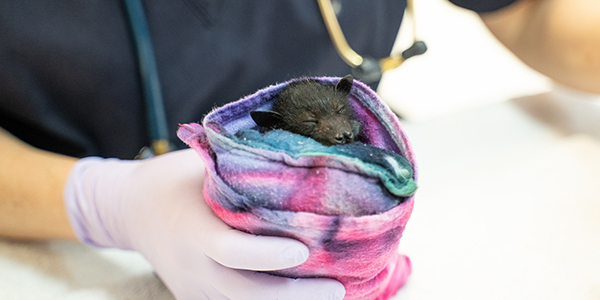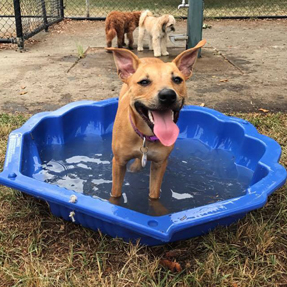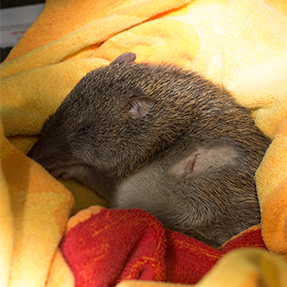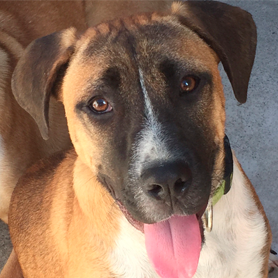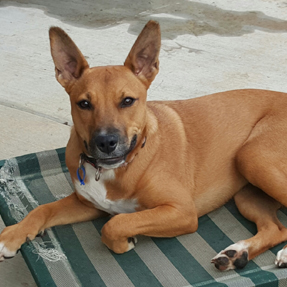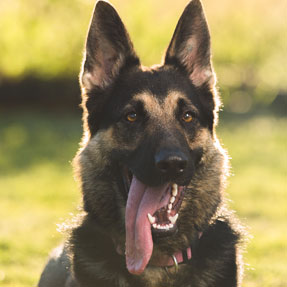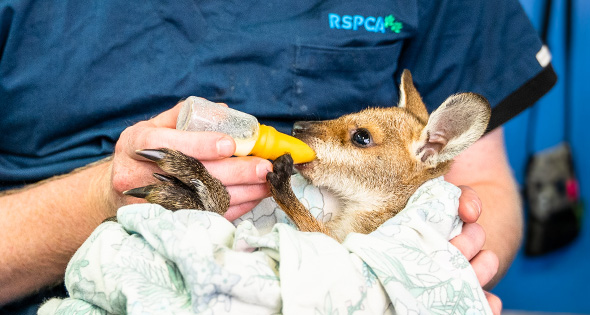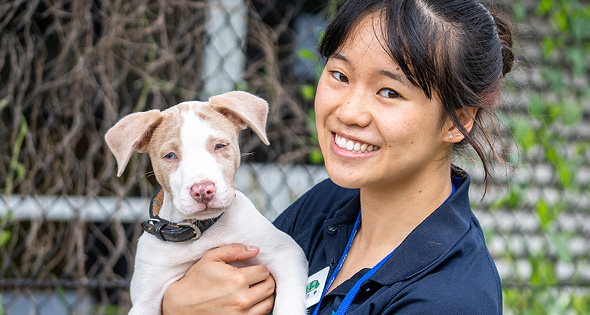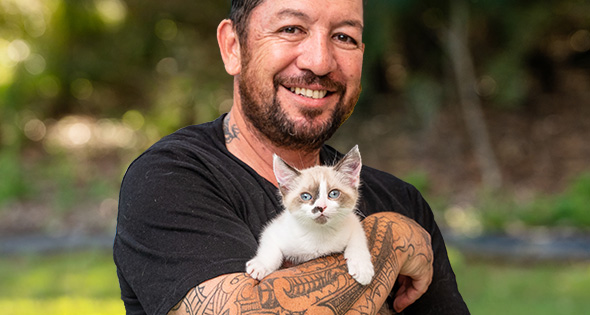Sugar Glider, RSPCA Wildlife Hospital
RSPCA Queensland has the largest and busiest Wildlife Hospital in the state, providing care to over 27,000 native animals every year. There are many factors that impact our native animals: natural disasters such as bushfire and droughts, dog attacks, road accidents and habitat loss.
Every year RSPCA care for and treat over 27,000 sick, injured or orphaned wildlife.
We have an incredible support network of wildlife carers across the state, wildlife rescuers and veterinary clinics who assist with wildlife cases reported to our 24/7 Animal Emergency Hotline - 1300 ANIMAL (1300 264 625).
Our RSPCA Wildlife Hospital at Wacol and Rehabilitation Centre at Eumundi treat many types of wildlife: native birds, possums, echidnas, koalas, kangaroos, snakes, lizards, and more!
Once an animal is admitted into our Wildlife Hospital they will be examined by our team of experienced wildlife veterinarians and veterinary nurses. Our veterinary team will conduct a physical examination and diagnostic tests as indicated. This might include evaluation of blood and other biological samples; taking and interpreting x-rays; and performing and interpreting an ultrasound examination.
The treatment of wildlife in Queensland is regulated by numerous acts, regulations and guidelines including the following:
- Nature Conservation Act 1992
- Nature Conservation (Wildlife Management) Regulation 2006
- Code of Practice for Care of Sick, or Orphaned Protected Animals in Queensland 2013
- Animal Care and Protection Act 2001
- Veterinary Surgeons Act 1936; Veterinary Surgeons Regulation 2016
At RSPCA Queensland, we treat wildlife patients in line with these regulations and ensure that the best welfare outcome for the animal is achieved. This means that wildlife patients with terminal injuries, incurable diseases or injuries that preclude their successful release back to the wild, or those that are feral species, are sadly euthanised.
Orphaned, injured and sick wildlife that have a good prognosis for successful treatment and return to the wild, will be stabilised, remain in care, or will be transferred to a wildlife rehabilitator or other registered facility for rehabilitation and eventual return to the wild. You can read our RSPCA Wildlife Animal Care Flow Chart here.
If you come across a sick or injured animal, contact our 24/7 Animal Emergency Hotline, 1300 ANIMAL (1300 264 625).
Support Australian Wildlife
Our dedicated wildlife and rescue teams work around the clock to save vulnerable and endangered animals. You can help them continue their vital work by donating to our RSPCA Wildlife Hospital.
Their crucial work to save our precious wildlife is only possible thanks to community support and generous donations. If you’d like make a donation to ensure our wildlife can continue to get the treatment, care and love they need to return to the wild, please donate here.

.ashx)
